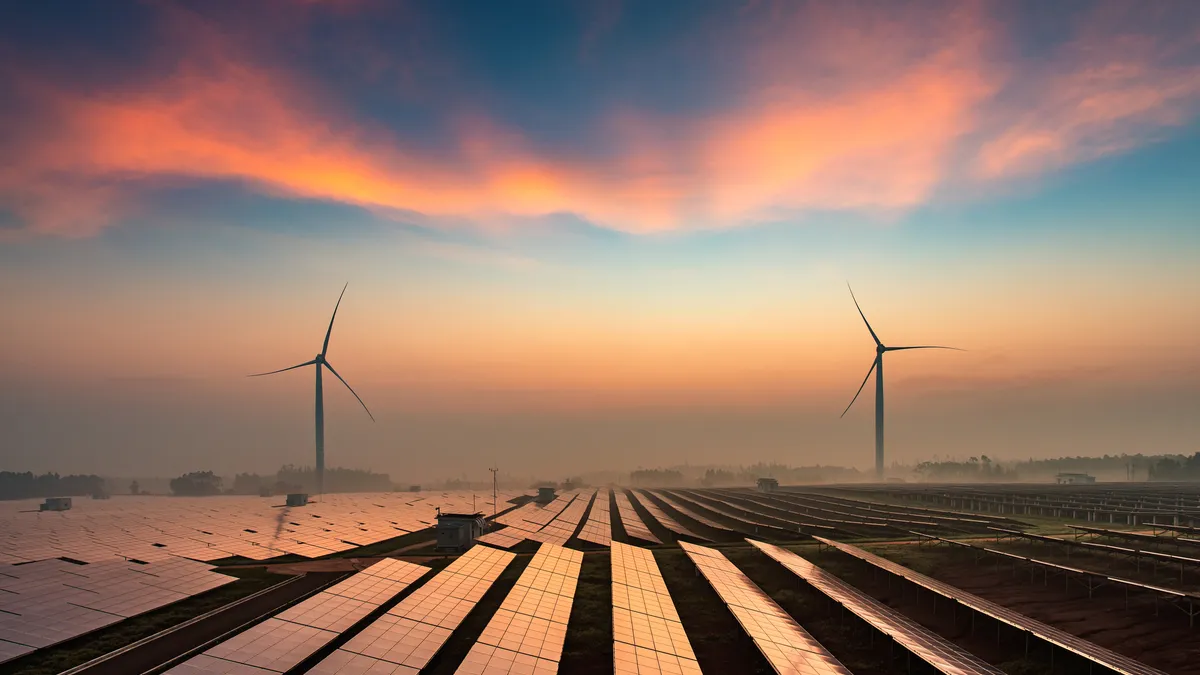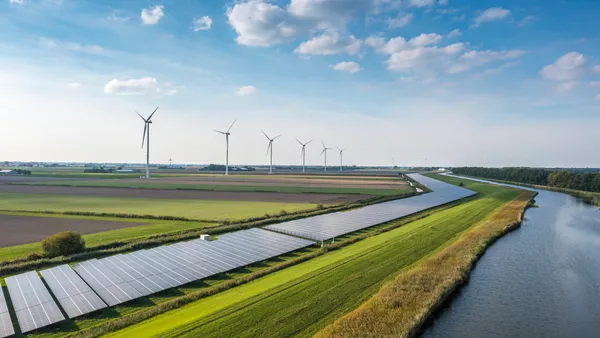Dive Brief:
-
Democrats introduced new legislation Thursday to adopt a 100% clean energy economy goal nationwide by 2050.
-
The bill, introduced by Rep. Donald McEachin, D, with more than 150 co-sponsors, would require all sectors of the economy to achieve net-zero greenhouse gas emissions by the middle of the century. Federal agencies would be tasked with identifying a path toward the goal, while the Environmental Protection Agency would be in charge of reviewing their plans.
- Environmental groups and clean energy advocates hailed the bill as a step in the right direction to combating climate change. Gas associations and other stakeholders, however, adopted a more cautious tone about the legislation.
Dive Insight:
A number of states, including Hawaii, California and New York, have adopted varying forms of 100% clean energy goals. Now, Democrats in Congress want to take such goals national and across the whole economy.
Their bill comes in response to the 2018 United Nations Intergovernmental Panel on Climate Change (IPCC) report, which found that restricting global warming to 1.5 degrees Celsius above pre-industrial levels would require reducing emissions to net-zero levels by 2050.
The 100% Clean Economy Act of 2019 focuses on improving public health, creating more jobs, benefiting small businesses and rural communities, and preparing for climate change, according to McEachin. The bill defines its eventual goal as "economy-wide, net-zero greenhouse gas emissions or negative greenhouse gas emissions" by 2050, taking into consideration all the carbon sources and sinks listed in the United Nations Framework Convention on Climate Change.
It would also create an advisory committee to track progress toward the 2050 goals. The committee would include a range of stakeholders, including local governments, state officials, representatives of tribal communities and environmental justice organizations.
The bill has no chance in the Republican-controlled Senate, but it lays down markers for further debate on the subject.
Environmental groups widely welcomed the bill: In statements, the Union of Concerned Scientists' Climate and Energy Program Director Angela Anderson called it a "bold commitment to combat climate change"; Environmental Entrepreneurs (E2) Federal Advocacy Director Sandra Purohit urged lawmakers to pass the target, saying it is not only achievable but would help create jobs; and eight medical and public health organizations, including the American Lung Association and Physicians for Social Responsibility, penned a letter supporting the bill.
"The science is clear that communities across the country are experiencing enhanced conditions for ozone pollution, dangerous extreme weather and flooding, wildfires and wildfire smoke, vector-borne diseases, and allergies, and that these impacts will continue to worsen without dramatic action to address climate change," they wrote.
But industry groups, including gas associations, were more measured in their response. Jon Switalski, executive director of Californians For Balanced Energy Solutions (C4BES) — which describes itself as a coalition of natural gas and renewable gas users — told Utility Dive in an email that the group is not opposed to the goals outlined by the legislation. However, he added, it opposes a "one-size-fits-all, ideologically driven solution that suggests that only renewable electricity and battery storage can accomplish this goal."
A 100% clean energy portfolio would need all existing infrastructure assets and should bring everyone to the table, he said, adding that renewable natural gas and hydrogen should also be a part of the solution.
The Interstate Natural Gas Association of America (INGAA) did not respond specifically to the bill; but in an email, an association spokesperson said natural gas is the "ideal foundation" for further renewable energy use.
Congress must treat hydropower equal to other carbon-free generation sources, and modernize the licensing process for hydropower facilities, to achieve deep decarbonization, National Hydropower Association President and CEO Malcolm Woolf told Utility Dive in an emailed statement.
"Hydropower is an essential part of any climate solution. It is a force multiplier that enables more wind, solar and variable resources to be integrated onto the grid," he said.
The American Gas Association declined to comment immediately on the proposed legislation. Association spokesperson Jake Rubin said its members would be given a chance to weigh the bill's possible impacts on its customers before commenting.















